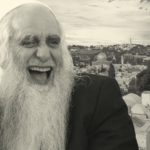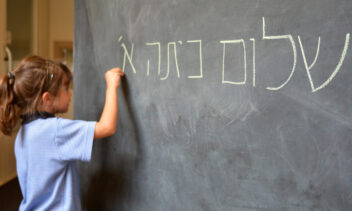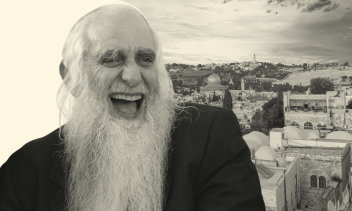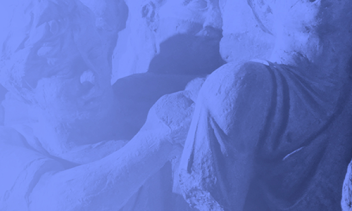Blue and White Cookies
I never really thought about living in Israel until I bought a house in Teaneck. A lot of the American trappings of what it means to be a Zionist were previously lost on me.
It’s hard to describe the home I grew up in—it certainly wasn’t typically Zionist, though it was 100% not anti-Zionist. We never went to the Israel Day Parade, mostly because my family wasn’t the parade type. I went to a school that didn’t overtly celebrate Yom Ha’atzamaut (I vaguely recall blue and white donuts some years), and I knew precious little about the political history of the Zionist movement.
As a kid, I associated Israel with a place you could buy chocolate bars that, at the time, weren’t kosher in America and buy t-shirts where the logos were written in Hebrew. I think my lack of consideration of aliyah was further compounded by frequent visits to my sisters, both of whom lived in Israel at the time. It wasn’t the typical American tourist experience. We didn’t stay in the classic tourist hotels (which admittedly still feel foreign to me). Instead, we camped at my sisters, sharing bedrooms, drinking those overly viscous fruit drinks where you feel perpetually thirsty, and getting the full experience of life in Israel. I was too young, too immature, too focused on comfort, and frankly probably grappling with depression as I felt too old to be on family trips to appreciate those visits. So what changed? I am going to try and explain but I feel like I might fail. Here goes.
America Feels Ordinary
The moment I got a house in America, I felt like the pedestrianness of life set in. It’s hard to explain, but instead of feeling like I was building a home, building upon history, life in America, to me, felt like watching the same movie over and over again. In a word, I get the nagging feeling that life in America is all about replacing the previous generation and ensuring that your life is as comfortable—or more comfortable—than the previous generation’s. In a sentence: Life in America (to me!) feels like we are just swapping places with previous generations without effectively moving the totality of Jewish history forward.
I know that seems pessimistic, and I know it sounds like I am criticizing American Jewry (of which I am a part), but I am just sharing my own feelings in an admittedly clumsy and hard-to-articulate way. American Jewish life sometimes feels like a hamster wheel, running in place just hoping that the device remains intact for the next generation.
Jewish life in Israel (again, to me!) feels different. It feels like you are participating in history rather than watching it. It feels like you are building something rather than borrowing it. It feels like you’re building equity in Jewish history rather than just paying a monthly rent.
And yet I don’t live in Israel. There are a host of reasons for that—most are fairly predictable and pedestrian. But I have not given up on being a Zionist. Maybe not in the traditional sense, but I do think, aside from actually living in Israel, Zionism animates my life in very specific ways.
Lottery Tickets and Previous Generations
There is a haunting line in Rav Yonason Eybeschutz’s Yaaros Dvash:
וזה הטעם שהסתיר ה’ קץ הגלות המר הזה דאילו היה נודע א”כ היו ישראל באותו זמן דווים מאוד שיהיו זמן רב בגלות ולא יוכלו לסבול הצער.
And it was for this reason that God hid the length of the bitter exile–for had people known then, the Jewish people at that time would have been so extremely forlorn that the exile was so long and they would have been unable to bear the pain.
It’s easy to criticize the State of Israel. It’s not religious enough. It’s too religious. It doesn’t have the ketchup you like. There are so many very real philosophical and ideological issues associated with the establishment of the State of Israel, and I understand why so many— and I am specifically speaking about those within the Jewish community—take issue with Zionism and Israel. And then I think about these words of Rav Yonason Eybeschutz. I imagine Jewish families from centuries ago watching the Jews today sitting around a table sharing their frustrations about Israel. And I think about how the very length of exile needed to be hidden just so people would not become hopeless. Don’t I owe it to previous generations to appreciate the sliver of redemption we see now? I think I owe the very longing of previous generations to give the current realization of Zionist longing at least the dignity of gratitude.
It reminds me of a scene in the movie Good Will Hunting. Matt Damon’s character in the movie, Will Hunting, plays a genius janitor whose brilliance is discovered by a mathematician in the university where he sweeps the floors. Will Hunting is offered all sorts of incredible job offers but blows them all off. Instead, he decides to return to the construction site where he and his best friend Chuckie, played by Ben Affleck, have been working. When he returns to the construction site, Chuckie is furious. Here’s the dialogue that ensues (with the considerable amount of expletives edited out):
Chuckie: Look, you’re my best friend, so don’t take this the wrong way, but in 20 years, if you’re livin’ next door to me, comin’ over watchin’ the —in’ Patriots’ games and still workin’ construction, I’ll —in’ kill you. And that’s not a threat, that’s a fact. I’ll —in’ kill you.
Will: Chuckie, what are you talkin’…
Chuckie: Listen, you got somethin’ that none of us have.
Will: Why is it always this? I owe it to myself? What if I don’t want to?
Chuckie: —- you. You owe it to me. Tomorrow, I’m gonna wake up and I’ll be 50 and I’ll still be doin’ this. And that’s all right ‘cause I’m gonna make a run at it. But you, you’re sittin’ on a winning lottery ticket and you’re too much of a — to cash it in. And that’s – ’cause I’d do anything to have what you got! And so would any of these guys. It’d be a —-in’ insult to us if you’re still here in 20 years.
Will: You don’t know that.
Chuckie: Let me tell you what I do know: Every day I come by to pick you up, and we go out drinkin’ or whatever and we have a few laughs. But you know what the best part of my day is? The 10 seconds before I knock on the door ‘cause I let myself think I might get there, and you’d be gone. I’d knock on the door and you wouldn’t be there. You just left.
It seems strange to say, but in the lament and complaints of Chuckie, I hear the voices of previous generations asking me to at least acknowledge the winning lottery ticket we are all sitting upon. I may not have the guts or even the urgency to cash it in, but at the very very least, I need to appreciate the value of the ticket.
‘They also serve who only stand and wait.’
There is one aspect of Zionism that is more easily fulfilled outside of Israel: anticipation. Waiting. Longing. I think there is something quite theologically profound that Zionism has not yet fully captured which is the continued anticipation for the revelation of a full redemption. I know this may sound small or cliche, or maybe woefully inadequate, but I do feel like my personal connection to Zionism is through constantly waiting and praying to Zion. There is a beautiful prayer that Rav Kook wrote during his time when he was stranded during World War I outside of Israel. This is what he wrote (thank you to my dearest friend, Rabbi Dr. Yosef Bronstein, for providing the translation):
הלב מתגעגע אחרי ההשגה של ארץ- ישראל, אחרי האמונה של ארץ-ישראל, אחרי הקדשה של ארץ-ישראל. איה לוקחים את השמחה של ארץ-ישראל, את השלוה הפנימית של ארץ-ישראל, את הדבקות של ארץ-ישראל, את האמת של ארץ-ישראל, את העז והאומץ של ארץ-ישראל, את הבטחון של ארץ- ישראל? חוסה ד’, רחם נא, אל רחום וחנון, חמול נא וזכני נא לשוב אליך בתשובה שלמה, והשיבני נא אל ארץ חמדתך. זכני נא לראות בשמחת גוייך, להתהלל עם נחלתך. רחם, רחם, אב הרחמן, חוס נא, הושיעה נא, האל המושיע.
The heart yearns for the comprehension of the Land of Israel, for the faith of the Land of Israel, for the holiness of the Land of Israel. Where do we take the joy of the Land of Israel, the inner serenity of the Land of Israel, the deveikus [cleaving] of the Land of Israel, the truth of the Land of Israel, the strength and courage of the Land of Israel, the confidence of the Land of Israel. Please, Hashem, have mercy, Merciful God, have pity now and give me the merit to return to you with complete teshuvah, and return me please to the Land of you desire. Let me merit to see the joy of your nation, to praise your inheritance. Have mercy, mercy, Merciful Father, take pity now save now, the God who saves.
I am not saying it’s the reason I don’t live in Israel, but I think there is a way to be a deeply spiritual Zionist outside of the land of Israel. Every time I daven, facing our homeland, and pray וְתֶחֱזֶינָה עֵינֵינוּ בְּשׁוּבְךָ לְצִיּוֹן בְּרַחֲמִים—may my eyes behold our return to Zion with mercy, I am participating in the generational longing that sustains our connection to our home, and quietly builds bridges between exile and redemption.
Afterword
I am well aware of how clumsy this essay has become. I have a very hard time talking about Zionism because the word still doesn’t feel instinctive and a part of my identity. I was raised to think in theological categories like galus (exile) and geulah (redemption). Maybe it’s the voice of my elementary school rebbe who inculcated an instinctive suspicion for any word that ends with “ism”. Or maybe I just didn’t give myself enough time to really clarify these thoughts in my own head. Most likely I just find speaking about Israel difficult because it is so deeply personal. It’s like answering one of those annoying “Where do you see yourself in 10 years? What are your hopes and aspirations?” The real answer is almost never the one shared.
I was recently on the Kiddush Club Podcast—the conversation went in a direction I totally didn’t expect. It’s worth a listen, I think, because I feel like they really caught me off guard. Either way, they were asking me questions about Israel, Messianism, and Zionism. I described myself as a Crypto-Messianic Zionist. It’s hard for me to share much more than that. But every time I look towards Israel I see the continuation of a promise made to Avraham, lech lecha—go to the land that I will show you. And it is that very promise, and that very land, that I continue to pray is fully revealed. From אל ארץ אשר אראך, the land that I will show you, to ותחזנה עינינו לשובך לציון ברחמים, our eyes behold the realization of that promise, nurtured through the generations, in its complete fulfillment.








